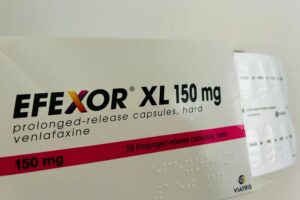From LancsLive: “The Lancet Psychiatry review, from the Universities of Berlin and Cologne, estimates that only one in every six or seven patients can expect symptoms when stopping antidepressants. However, the review also found that symptoms are more common with some antidepressants than others.
The review of various studies found that the most commonly used antidepressants in the UK – citalopram, sertraline and fluoxetine – had the lowest risk of antidepressant discontinuation symptoms. But venlafaxine, which is also used in the UK, had the second highest, and I’m not at all surprised.
. . . Quite a few years ago I was once (wrongly) advised to suddenly stop taking venlafaxine due to another health condition. The side effects were so severe that I am now convinced that I’ll never be able to come off it because even forgetting to take it for one day results in crippling symptoms.
The first time I began to realise that I was starting to feel strange, having stopped taking venlafaxine, was when I was crossing the road one day. All of a sudden a wave of vertigo came over me and I felt as if I was constantly falling to the ground.
It was so overwhelming that I had to hold onto desks even when simply walking from one end of the office to the other. My head was spinning.
I subsequently began taking venlafaxine again, having been informed that it was safe to do so and that I should never have been told to go ‘cold turkey’. On that advice I assumed I would never again experience such dreadful side effects.
I was wrong.
If I ever forget to take my tablets for a single day I begin to get the most bizarre hearing sensation. It’s like I can hear the blood flowing through my ears. It is truly terrifying and impossible to ignore.”

***
Back to Around the Web











